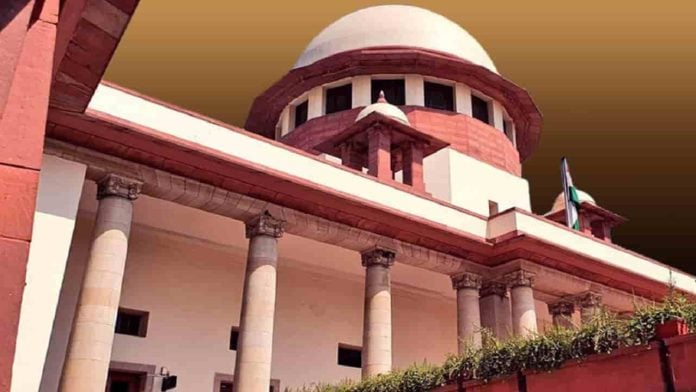A fine of 1 lakh was imposed on the Central Government by the Apex Court for its “callous, careless and casual approach” that resulted in cancellation of a coal mining lease that was validly granted in favour of BLA Industries Private Limited.
The bench of Chief Justice of India NV Ramana, Justice Krishna Murari and Justice Hima Kohli said that BLA Industries had followed the correct procedure of approaching the State government first with an application seeking a mining lease and that it was granted in accordance with the Mines and Mineral (Development and Regulation) Act, 1957 (MMDR Act).
The top Court held that mining lease was not tainted by mala fides amd followed the procedure prescribed in the MMDR Act and the Mineral Concession Rules of 1960.
The Central government, did not determine as to whether the petitioner had been allotted the mine through lawful procedure. The court further said that the Union of India incorrectly added the name of the petitioner in a list of 46 coal blocks submitted before the top court in the Coalgate case monitored by the top court
The court ordered that a result of this callous, careless and casual approach of the respondent no. 1 – UOI, the present petitioner had to suffer loss and ignominy. Therefore, litigation costs quantified at ₹1 lakh shall be paid by the respondent No.1 – UOI to the petitioner within four weeks
A plea by BLA Industries was heard by the the Supreme Court in 2014 case of ML Sharma vs Union of India.The petitioner had not been allotted coal block through the Screening Committee constituted by the Ministry of Coal of Union of India.
The Coalgate case before the top court has considered quashing of the allocation of coal blocks to private companies made by the Central government between 1993 to 2011.
In the 2014 judgment in that case, the Apex court had said that the Central government of allocation of coal blocks, was neither traceable to the MMDR Act or the Coal Mines (Nationalization) Act and the practice and procedure adopted by the Central government for allocation of coal blocks to the beneficiaries through the Screening Committee Route, was inconsistent with the law already enacted and the Rules framed.
The advocate Abhimanyu Bhandari, who appeared for the petitioner, argued inclusion of the petitioners name incorrectly resulted in cancellation /quashing of the lease that was validly granted in its favour.
Additional Solicitor General Balbir Singh,who Central Government, contended that the additional levy has been imposed in principle on the beneficiaries of illegal allocation like the petitioner.
He also added that purpose of imposition additional levy was that since the process of allocation was found to be fundamentally flawed by the Supreme Court therefore, all the beneficiaries of the said flawed process including the petitioner ought to suffer the consequences and compensate the public exchequer for the loss caused..
Balbir Singh also said that the petitioner along with some other allottees had attended the 11th Meeting of the Screening Committee held on 26th-27th September, 1997 and once the allocations made by the Central government on the recommendations of the Screening Committee have been held by the Supreme Court to be illegal, the petitioner cannot claim any different treatment from that extended to the other allottees.
The Court has observed that in this case private party followed all the rules and the law, as applicable, before investing large sums of money to undertake business, and it was Central government that did not follow the letter of the law.
The Court stated that the petitioner’s woes were compounded as the respondent filed an affidavit before this Court which includes the petitioner in the list of errant mine owners, based on its own unlawful conduct. It did not undertake the necessary due diligence to determine as to whether the petitioner had been allotted the mine through the lawful procedure,” the Court stated.
The Court has held that the Central government is not entitled to claim payment of an additional levy for the coal extracted by the petitioner.


